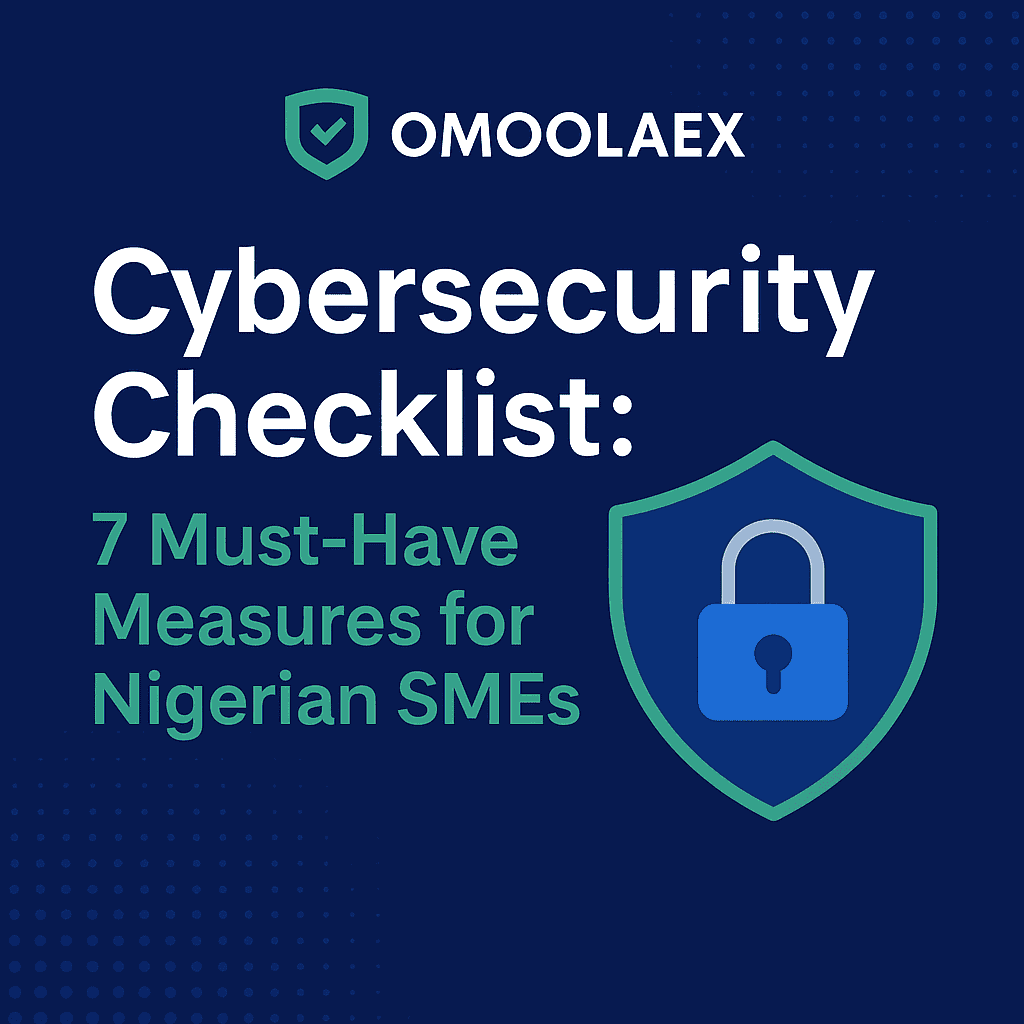How recently did you clean the keyboard on your laptop? Now, how recently have you cleaned up the digital environment at your company?
Data is both your most valuable and most vulnerable asset in today's business environment. Cyberattacks are now a daily occurrence for companies of all sizes, particularly startups and SMEs functioning in rapidly expanding digital economies like Nigeria. Even so, few people give cyber hygiene the cornerstone of cybersecurity the attention it deserves.
Sadly, a lot of people view cyber hygiene as a one-time checklist. Install a security program? Verify. Passwords need to be updated? Verify. Well done.
Not exactly.
At OmoolaEx, we view cyber hygiene as more than just upkeep; it is the foundation of digital resilience and a direct factor in the expansion of businesses. Don't assume that a few software updates will protect you. Today, let's explore the true meaning of cyber hygiene and how to go beyond the fundamentals.
Cyber Hygiene: More Than a Checklist
Although the phrase "cyber hygiene" seems straightforward, the idea is profound. Establishing a security culture within your company is more important than merely installing firewalls and using secure passwords.
Most attackers enter through the back door—forgotten accounts, outdated plugins, or vulnerable processes—rather than by storming the gates. Maintaining proper hygiene entails:
- early risk identification.
- filling in the gaps that are hidden.
- forming routines that integrate security into daily operations.
Perfection is not the aim. Consistency is the aim.
Where Most Businesses Go Wrong
To be honest, the majority of SMEs believe that SSL certificates and antivirus software are the extent of cyber hygiene. These are just the first layer, despite their importance.
In audits, we frequently observe the following three blind spots:
- Unobserved Digital Resources: You gave up on that landing page last year? It could still be vulnerable and live. Hackers are drawn to outdated plugins and expired domains.
- Access Control Ignored: It's not uncommon for former workers to still have access to company systems. Your entire business could be jeopardized by a single forgotten account.
- Reactive, Not Proactive Security: Before taking action, businesses frequently wait for alerts or, worse, breaches. The damage is done by then.
Five Advanced Cyber Hygiene Practices SMEs Can’t Ignore
- Constant Asset Tracking: Your company changes. Your digital footprint does as well. Use automated scans to find weak DNS records, misconfigured servers, and abandoned domains. Attackers are invited to use outdated systems.
- Risk Assessment, Avoiding Panic: Not every threat is the same. Prioritize by impact rather than following every alert.
For instance, a typo-squatted domain that imitates your brand poses a serious risk. An outdated blog with a broken link? Low risk, but eventually worth fixing. - Integrate Security Into Business Culture: Everyone has a responsibility to practice cyber hygiene, not just IT professionals. Workers should be able to handle sensitive data, identify phishing attempts, and confirm dubious communications.
Conduct security awareness training every three months. Even brief, useful exercises can prevent expensive security breaches for your business. - Plan for Recovery Rather Than Just Prevention: Even solid walls can break. Your safety net consists of offline copies, regular backups, and a tried-and-true recovery strategy. Try to follow the 3-2-1 backup rule:
- Three copies of your information
- Two distinct kinds of storage
- One offline copy
- Get Ready for AI-Powered Dangers: AI-generated phishing emails and deepfakes are no longer considered "future threats." They are present. Imagine getting a voicemail from your CEO, who isn't actually them, requesting a speedy transfer.
For sensitive approvals, establish verification procedures; voice or video alone is no longer sufficient.
Using Compliance to Gain a Competitive Advantage
NDPR compliance is more than just a box to check for Nigerian companies. Strong cyber hygiene, however, goes beyond avoiding fines; it increases trust, which is essential for startups, fintech companies, and SMEs trying to grow or draw in investors.
The Bottom Line: Clean Systems, Confident Business
It is not a nice-to-have to practice cyber hygiene. It is both a growth enabler and a business survival skill. Businesses that take security seriously today will be the ones that succeed tomorrow.
We at OmoolaEx assist companies just like yours in creating a cyber hygiene framework that aligns with your expansion goals. We ensure that your digital doors remain locked through comprehensive audits and continuous monitoring, allowing you to concentrate on creating, growing, and prospering.
Ready to Fortify Your Digital Health?
Let’s start with a Cyber Hygiene Audit tailored to your business.
Book a Free Consultation with OmoolaEx →


